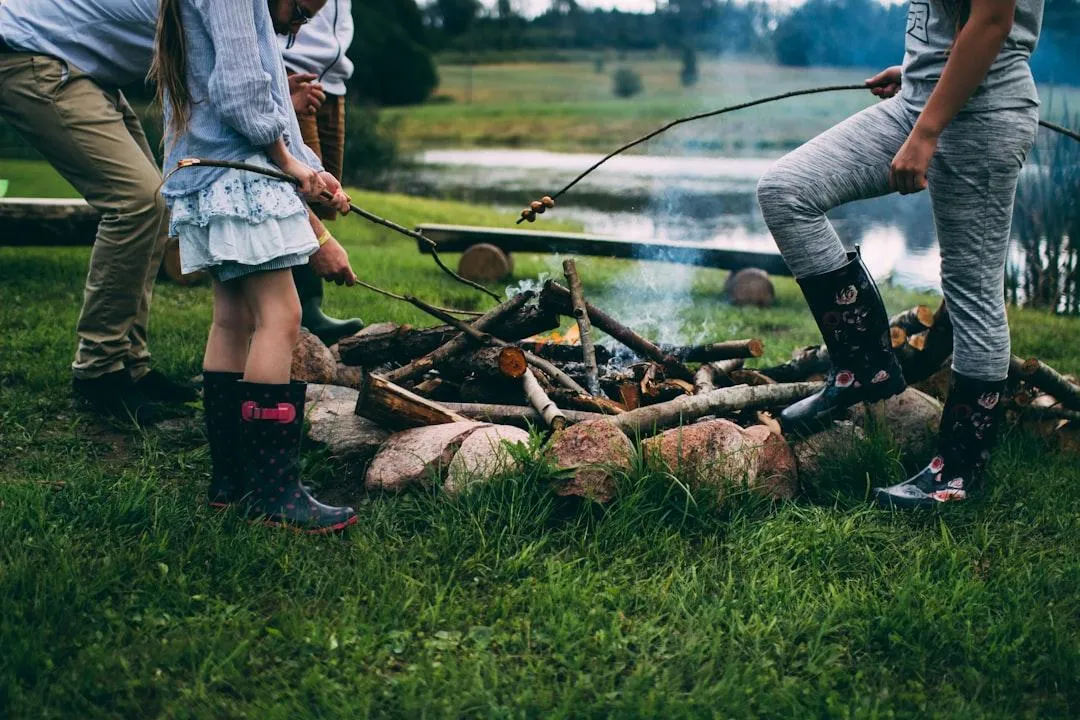
HOMESTEAD FANATIC BLOG
Discover amazing destinations, plan your perfect trip, and book unforgettable experiences. Our travel website makes traveling around the world easy, enjoyable, and hassle-free.
EXPLORE GREAT PLACES
THE HOMESTEAD BLOG

How to Sleep Better in the Spring Despite Pollen: Tips for Better Rest
Spring is a beautiful time of year, bringing warmer weather, blooming flowers, and longer days. However, for many people, it also brings an unwanted challenge: pollen. Seasonal allergies are common during spring, and the pollen in the air can wreak havoc on your sleep quality, leaving you feeling groggy and unrested. In this article, we’ll explore how to sleep better during the springtime, despite the presence of pollen, and offer practical tips to help you enjoy better rest and wake up feeling refreshed.
Understanding the Impact of Pollen on Sleep
Spring is synonymous with pollen. Trees, grasses, and flowers release their pollen into the air to reproduce, and this natural process can trigger allergic reactions in susceptible individuals. The common symptoms of spring allergies include sneezing, itchy eyes, runny nose, coughing, and congestion. However, one of the most overlooked effects of these allergies is how they interfere with sleep.
Pollen can cause a range of issues that disrupt sleep, such as:
Nasal Congestion: When your nasal passages become blocked due to an allergic reaction, it becomes difficult to breathe freely at night. This can cause discomfort and wakefulness, preventing deep and restorative sleep.
Itchy Eyes and Throat: Allergies often cause itching in the eyes and throat, making it uncomfortable to relax and fall asleep. Rubbing your eyes or throat can also exacerbate irritation and lead to more frequent awakenings during the night.
Breathing Problems: Pollen-induced asthma or difficulty breathing can worsen at night when air quality is poorer, making it harder to get a good night’s sleep.
Fortunately, there are several steps you can take to manage pollen allergies and improve your sleep quality during the spring months.
1. Keep Your Windows Closed at Night
While fresh air can be tempting in the spring, it’s best to keep your windows closed at night, especially if you live in an area with high pollen counts. Pollen tends to be at its highest levels early in the morning and late afternoon, so even if you have the windows open for a short time during the day, consider keeping them closed during the night. This will prevent pollen from entering your home and making it difficult to breathe while you sleep.
2. Use an Air Purifier
Air purifiers with HEPA (High-Efficiency Particulate Air) filters are highly effective at trapping pollen particles and other allergens in the air. Investing in a high-quality air purifier for your bedroom can significantly improve indoor air quality and reduce the presence of pollen while you sleep. Make sure to place the air purifier near your bed for maximum benefit. Additionally, ensure the air purifier is cleaned and maintained regularly to ensure optimal performance.
3. Shower Before Bed
After spending time outdoors during the spring, pollen can cling to your clothes, hair, and skin. When you go to bed with pollen on your body, it can transfer to your sheets, pillowcases, and blankets, aggravating your allergies throughout the night. To prevent this, take a warm shower before bed to wash off any pollen particles from your hair and skin. Change into clean clothes and avoid wearing outdoor clothing in your bedroom to minimize the spread of allergens.
4. Keep Bedding Clean
In addition to showering before bed, it's important to wash your bedding regularly. Pollen can accumulate on your pillowcases, sheets, and blankets, making them a source of allergens that can disrupt your sleep. Wash your sheets, pillowcases, and blankets once a week using hot water to remove any pollen particles. Consider using hypoallergenic covers for your pillows and mattress to further reduce exposure to pollen while you sleep.
5. Consider Allergy Medications
If your allergies are particularly severe, over-the-counter or prescription medications may be necessary to reduce symptoms and improve your sleep. Antihistamines, nasal sprays, and decongestants can help alleviate symptoms such as nasal congestion, itching, and sneezing. It’s important to talk to your doctor about the best medication for your specific symptoms. Some medications may cause drowsiness, making them an excellent choice for helping you sleep better at night.
6. Monitor Pollen Levels and Adjust Your Activities
To minimize your exposure to pollen, keep an eye on daily pollen forecasts. Many weather apps and websites provide information about pollen counts in your area. On days with high pollen levels, try to stay indoors as much as possible, particularly during peak pollen times (early morning and late afternoon). If you must go outside, wearing sunglasses can help prevent pollen from getting into your eyes, and a hat can help keep pollen off your hair and face.
7. Create an Allergy-Friendly Bedroom Environment
Making your bedroom allergy-friendly can be a game-changer for better sleep. Consider the following tips:
Wash Your Curtains: Like bedding, curtains can trap pollen and other allergens. Wash them regularly or switch to blinds, which are easier to clean.
Keep Pets Out: Pets can track pollen into your home on their fur. Keep them out of the bedroom to reduce the likelihood of allergens in your sleeping area.
Choose Hardwood or Tile Floors: Carpets can trap dust, pollen, and other allergens. If possible, opt for hardwood or tile floors, which are easier to clean and keep allergen-free.
8. Try Natural Remedies for Allergies
If you prefer a natural approach, several remedies can help reduce allergy symptoms. Some people find relief from using neti pots to rinse the nasal passages with saline solution, or local honey, which some believe can help desensitize the body to local pollen. However, always consult with your healthcare provider before trying new treatments, especially if you have underlying health conditions or severe allergies.
Conclusion
Spring brings a lot of joy, but it can also present challenges for those with pollen allergies. By following these tips, you can minimize the impact of pollen on your sleep and enjoy better rest during the season. From keeping windows closed to using air purifiers and allergy medications, there are plenty of strategies to help you sleep better despite the pollen. Remember that consistency is key, and the more steps you take to reduce your exposure to allergens, the better your sleep will be.

POPULAR QUESTIONS
Asked Questions ?
Many people interested in homesteading ask about how to get started, what animals and crops are best for beginners, and ways to generate income from their land. Food preservation techniques are also a common topic, as self-sufficiency plays a key role in homesteading success. These FAQs provide a helpful starting point for anyone looking to embrace a more independent and sustainable lifestyle.
What is homesteading?
Homesteading is a lifestyle focused on self-sufficiency, which often includes growing your own food, raising livestock, preserving food, and using sustainable practices to reduce reliance on modern systems.
How do I start homesteading with little or no land?
Even if you don’t have a large property, you can start small by container gardening, keeping backyard chickens (if permitted), composting, and learning essential skills like food preservation and DIY projects.
What animals are best for a beginner homesteader?
Chickens, rabbits, and ducks are great starter livestock. They require less space, are relatively easy to care for, and provide eggs or meat while helping with pest control.
How can I make money from homesteading?
Many homesteaders generate income by selling eggs, honey, homemade goods, fresh produce, handmade crafts, or even offering homestead-related workshops.
What are the best crops for beginner homesteaders?
Easy-to-grow crops include tomatoes, zucchini, lettuce, radishes, and herbs like basil and mint. These require minimal maintenance and provide a great starting point for new homesteaders.
How do I preserve food for long-term storage?
Canning, dehydrating, freezing, and fermenting are all effective ways to preserve food. Each method has its benefits, depending on the type of food and your available storage space.

Your Gateway to Global Adventures Await Here.
Quick Links
Home
About Us
Services
Blog
Quick Links
Email:
